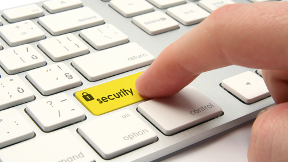
Most of us don’t think about computer security until our desktops and laptops are suddenly infected by viruses. When we can’t log onto the Internet or access our email messages because of malware, we suddenly wish we had taken the steps to protect our computers.
The good news is that protecting your computer is a relatively easy task. It mostly requires some common sense and a few quick fixes.
Business Insider recently provided some suggestions for computer users who want to boost the safety of their machines.
1. Turn off Java
Business Insider led with this for a reason. Java, software that runs interactive functions on some web pages, often opens the doors to hackers. Business Insider cited the 700,000 Apple computers that were—earlier this year—infected with the Flashback Trojan malware. All of the computers were running out-of-date versions of add-ons that let their web browsers run Java.
Turning off Java requires different steps depending on what browsers you are running. If you need assistance, check your browser’s Help section. (Or get in touch with us.)
2. Stay current with all software updates
Busy computer users sometimes forget to check their operating systems for updates. This can be a key mistake: Updates often include protection from the latest viruses. If you ignore software updates, you might be leaving your computer vulnerable to hackers.
If you work on a Mac computer, your updates will be delivered through a system called Software Update. PC software updates come from Windows Update.
3. Lock your computer
Business Insider recommends, appropriately, that computer users lock their computers when the machines are sleeping. Doing this requires that you create a password that users must type in to access your computer.
This might seem like an inconvenience. But, as Business Insider points out, what if someone steals your laptop? If this thief can access your computer without a password, the criminal could easily rummage through your personal files and information.
4. Change your passwords
Business Insider recommends that you change your passwords every month. The site also advises you to create passwords that are difficult for others to guess, like ones that contain letters, numbers, and symbols.
